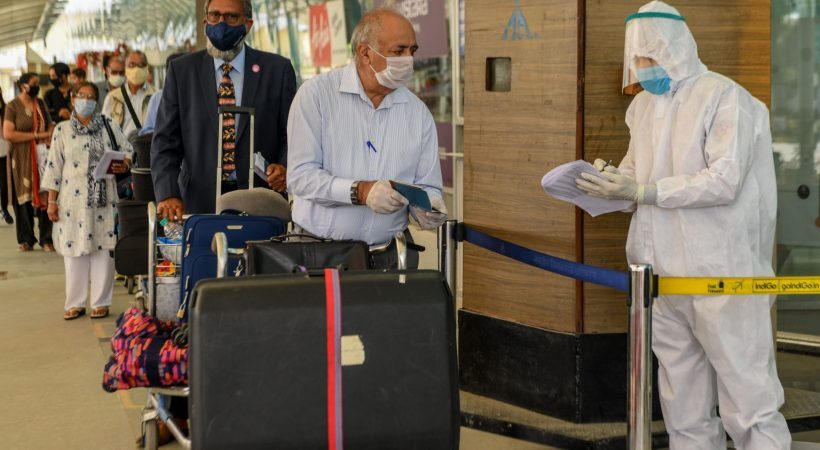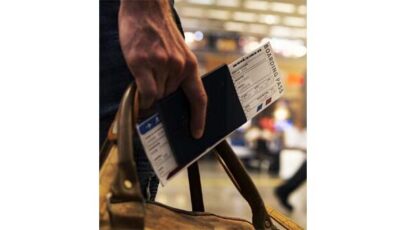Omicron Threat: India Revises Guidelines For International Travel– Important Points

In the wake of the alarming spread of newly detected Omicron variant across the world, India on Monday issued revised guidelines for international travel which will come into force from December 1.
According to the new guidelines, from December 1 on wards, international passengers arriving in India will need to submit their 14-day travel history and a negative RT-PCR report on Air Suvidha portal before the scheduled travel. India will mandatorily test all passengers coming from at-risk countries and 5% of all global flyers randomly post arrival.
The Centre has also decided to reassess its plan to resume international flights in India. “Decision on the effective date of resumption of scheduled commercial international passenger service, to be reviewed, as per evolving global scenario,” a home ministry spokesperson tweeted.
The new guidelines have delinked the vaccination status from international arrivals. Now, all international passengers intending to travel to India have to mandatorily submit a self-declaration form on Air Suvidha portal along with travel history for the past two weeks.
Important points in the newly released guidelines:
- The updated guidelines require all travelers (irrespective of Covid-19 vaccination status) coming to India from countries identified as ‘at at risk’ to mandatorily undergo post-arrival Covid-19 testing at the airports.
- If a passenger tested positive for coronavirus in airport test (post-arrival or pre-departure) they will be isolated and treated as per clinical management protocol. The sample of such passengers will be taken for ‘Whole Genome Sequencing’.
- At the time of boarding the flight, only asymptomatic travelers will be allowed to board after thermal screening and all passengers shall be advised to download Aarogya Setu app on their mobile devices.
- However, if passengers are found negative on the Covid test, they will still have to undergo home isolation for 7 days, followed by repeated testing on the 8th day of arrival in India and seven days of self-monitoring.
- As per the revised guidelines 5% of travelers coming from countries not in the ‘at risk category’ will also be tested on a random basis.
Apart from the aforementioned guidelines, an international traveler must also note that children under five years of age remain exempted from both pre-and post-arrival testing. However, if found symptomatic for Covid-19 on arrival or during home quarantine period, they shall undergo testing and be treated as per laid down protocol, the Center had said in yesterday’s guidelines.
All the people who have come in contact with Covid positive travelers will also be subjected to quarantine for 14 days and tested. International passengers arriving through seaports/land ports will also have to undergo the same protocol, except that facility for online registration is not available for such travelers currently.
Earlier, ministry of Health and Family Welfare had added Hong Kong and Israel to the list of countries from where travelers would need to follow additional measures on arrival in India, including post-arrival testing considering the detection of new COVID variant ‘Omicron’ in South Africa.
Countries from where the travelers would need to follow additional measures on arrival in India are South Africa, Brazil, Bangladesh Botswana, China, Mauritius, New Zealand, Zimbabwe, Singapore, Israel, Hong Kong, countries in Europe including the UK.
Earlier, Health Secretary Rajesh Bhushan, in a letter to health secretaries of all states and Union Territories, said: “lt has now been reported by National Center for Disease Control (NCDC) that multiple cases of a COVID-19 variant B.1.1.529 (named as Omicron) have been reported in Botswana (3 cases), South Africa (6 cases) and Hong Kong (1 case).
This variant is reported to have a significantly high number of mutations, and thus, has serious public health implications for the country, in view of recently relaxed visa restrictions and opening up of international travel.”















